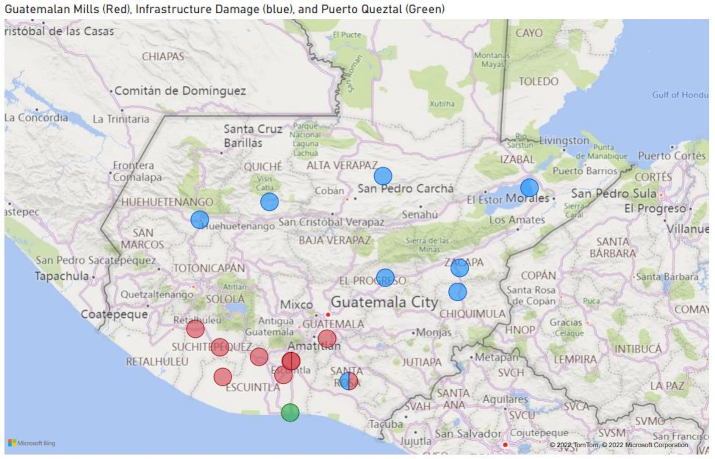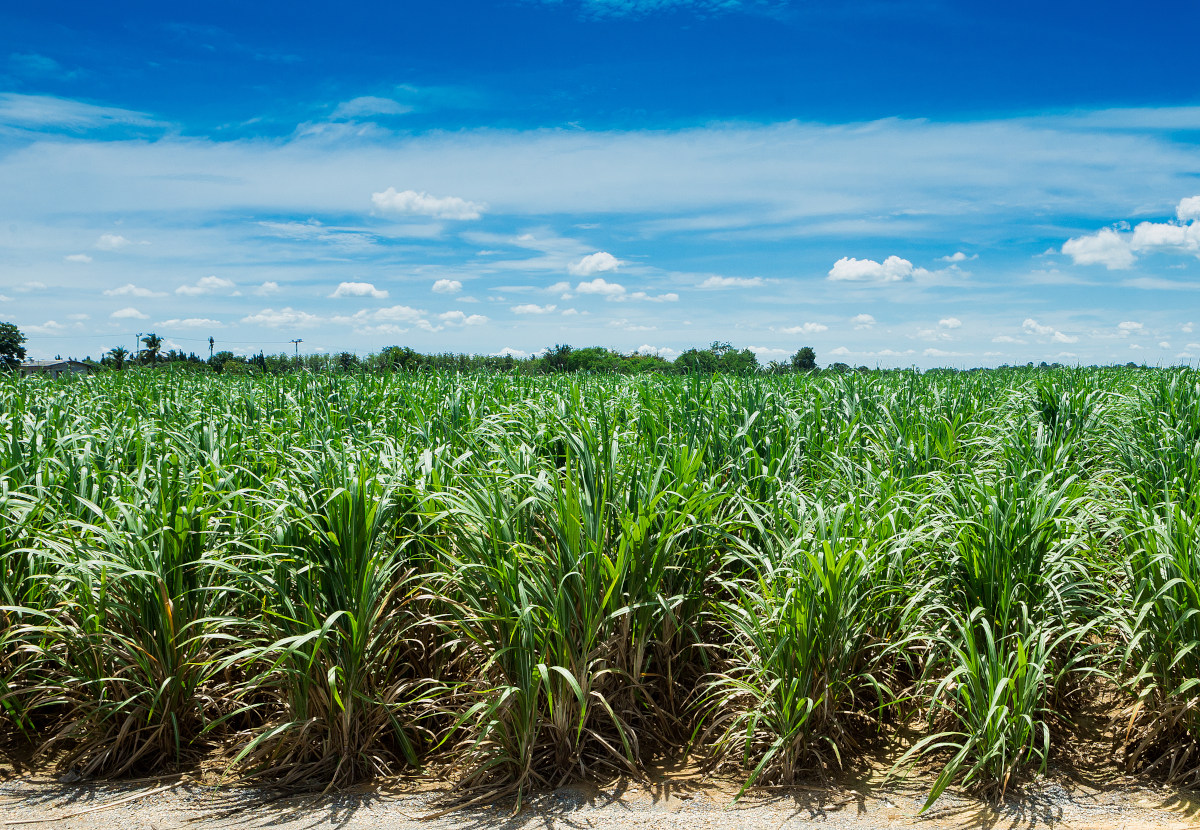Insight Focus
- Hurricane Lisa hits northern part of Guatemala.
- Guatemala sugar production to remain constant.
- New Guatemalan trading partners emerge.
We expect Guatemala to produce approximately 3m tonnes of sugar for the 2022/23 season, almost identical to last year’s harvest. Guatemala’s sugar production has been relatively consistent over the past ten years. Sugar production has remained the same due to the lack of availability of land. Sugar competes with banana and African palm oil for land usage in Guatemala’s southern region.
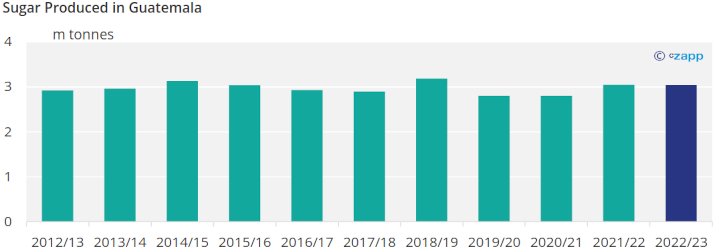
Guatemala is the largest sugar producer in Central America and the Caribbean.
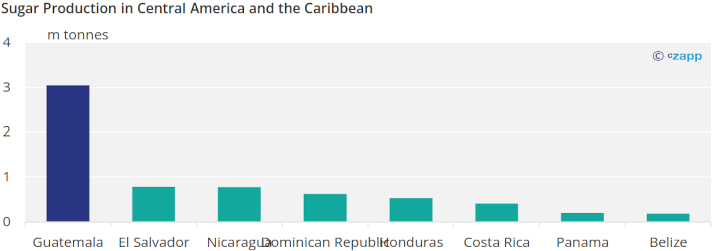
Guatemala primarily used to produce raw sugar, but with a rising white premium in the last few years, many sugar mills started refining their sugar and selling it as a bagged value-added product. The production of bagged sugar has increased the past four seasons. Bagged sugar production has grown from 61% in 2018 to a projected 70% for the 2023 season.
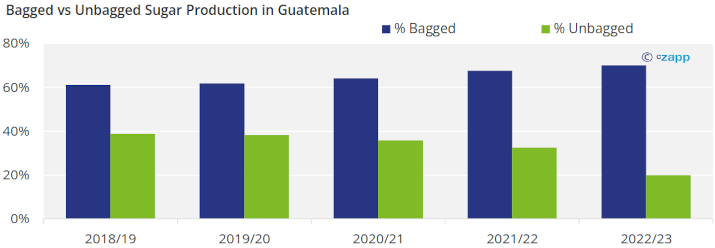
Guatemala Sugar Balance Sheet
- We think Guatemala consumes 970k tonnes of sugar domestically.
- 1.74 m tonnes of sugar are exported to the world market (mainly the US).
- Guatemala doesn’t import sugar.
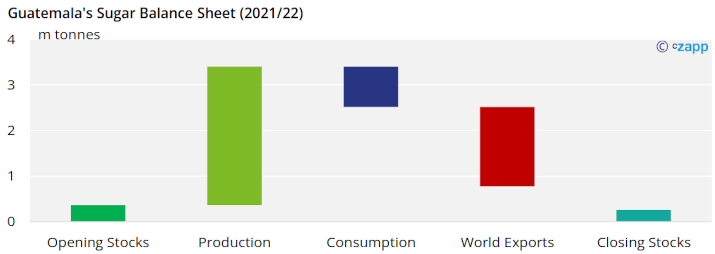
We project Guatemala’s sugar consumption to increase in the following years. Sugar consumption per capita has surpassed pre-pandemic levels. Also, since Guatemala’s population has a young median age of 22 years, we expect Guatemala’s population to continue growing.
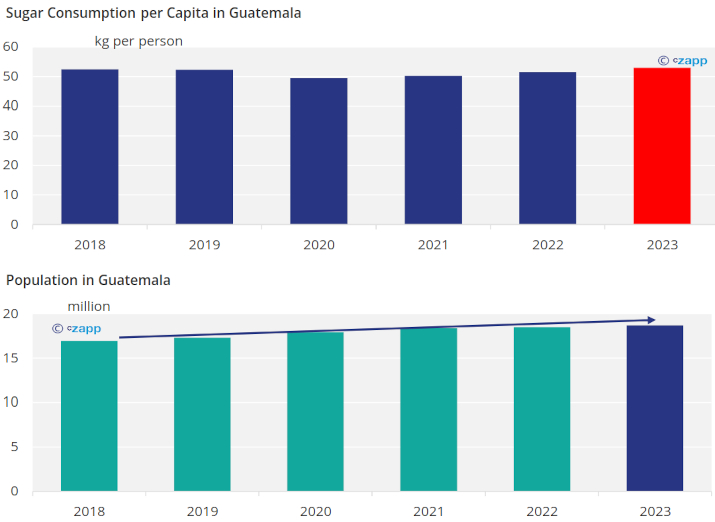
Unlike most countries, Guatemala exports most of the sugar it produces. Guatemala exports have remained between 1.75 m tonnes and 1.89 m tonnes in the last six harvests. The only harvest to go below this threshold happened in 2020/21. The 2020/21 harvest was remarkably low due to high amounts of rain that season.
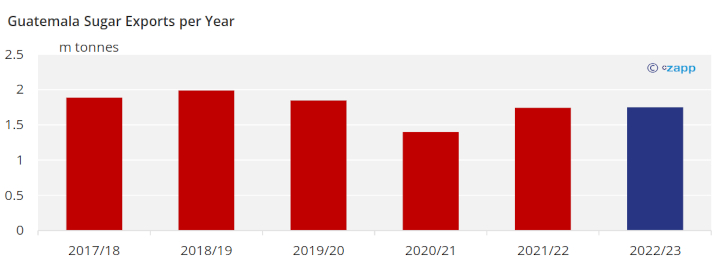
Guatemala mainly exports its sugar to the United States under the CAFTA agreement and the TRQ Quota. Guatemala has the third-largest TRQ quota in Latin America with 50kmt of duty free quota.
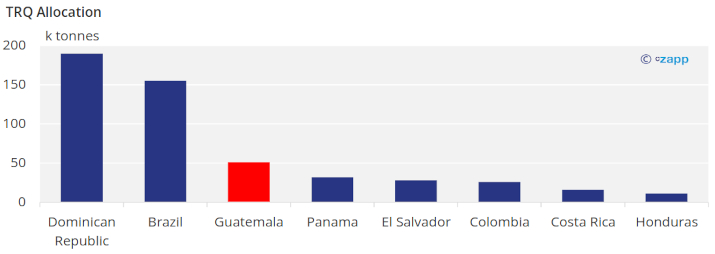
Guatemala also sends white and refined sugar to the US under the CAFTA program as well as out of quota duty paid. This makes the US the most important single sugar market for Guatemala.
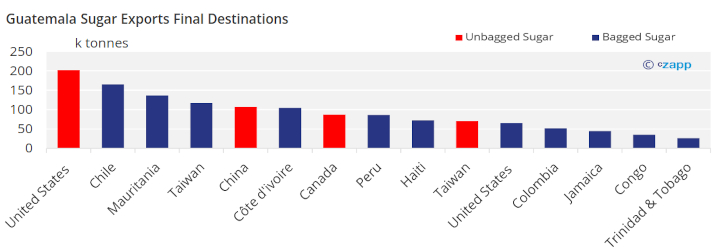
The move to produce more bagged sugar has allowed Guatemala to diversify its export profile. Apart from United States and China, most export destinations are now bagged sugar homes rather than refineries. We expect this trend to continue in the future as the white premium remains supportive.
Hurricane Lisa Effect on Cane Crop
On November 2nd, Hurricane Lisa made landfall in Guatemala. This storm caused catastrophic damage to Guatemala and other parts of Central America. Fortunately, the cane industry should not be affected by the storm. Most of the hurricane’s damage was in the country’s coffee and cardamom-producing northern region. All of Guatemala’s sugar mills are in the country’s southern area. Transportation of sugar should be fine since Puerto Quetzal, where most of the sugar is exported, is located on the country’s south coast.
